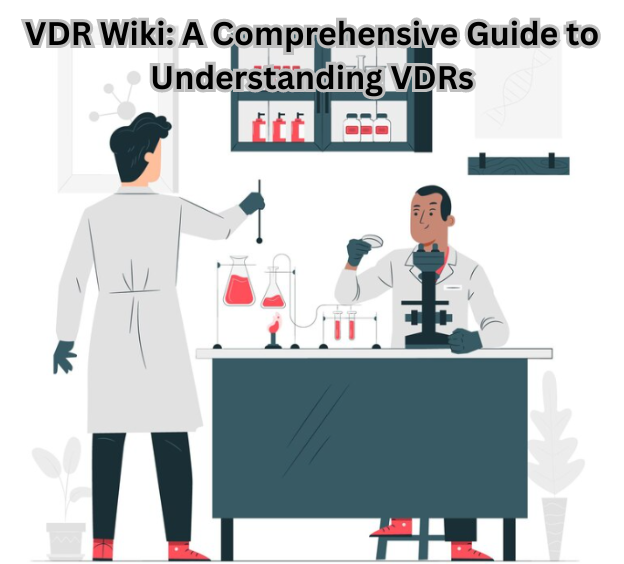virtual data room wiki wikis are becoming increasingly important in the dynamic environment of corporate transactions and safe data management. This all-inclusive book intends to help readers grasp virtual data rooms, how they work, and why they’re necessary for conducting risk-free and productive commercial transactions. Click here

A VDR is defined as a “virtual data room.”
Mergers, acquisitions, due diligence, and fundraising typically involve sharing sensitive documents in a Virtual Data Room, a secure online repository. The main goal is to make it easier for people to work together and share sensitive data safely and securely.
Top Functions of Virtual Repositories
First, the Safety Measures:
VDRs use cutting-edge safety features like encryption, multi-factor authentication, and strict access limits to protect the privacy and integrity of their data.
Permissions and Access Management for Users:
Thanks to granular access controls and user permissions, administrators may restrict users’ abilities to read, modify, and download documents in a safe and personalized setting.
Comprehensive records of user actions inside the VDR are made possible by tracking and auditing features, increasing accountability and openness during sensitive transactions.
By following industry-specific regulatory norms, VDRs help firms stay in the law’s good graces and protect sensitive information during transactions.
File Transfer:
A virtual data room (VDR) is a digital storage facility whereby only authorized users have access to the contents.
Openness and Teamwork:
Communication and making decisions are more accessible when all relevant parties can view and edit documents securely online.
Organization of a Data Room:
The data room may be managed by administrators who set permissions, track user activity, and adjust settings to meet the requirements of the current transaction.
Virtual data rooms have several benefits.
Safety Improvements:
Virtual data rooms (VDRs) provide a more secure alternative to conventional methods of file exchange, protecting confidential documents from prying eyes.
Cooperation That Gets Things Done
Due diligence and decision-making can be sped up because of the virtual environment’s ability to provide seamless cooperation across teams in different physical locations.
VDRs improve workflows by offering a single hub for document storage, decreasing the chance of mistakes, and assuring a more structured approach to data management.

A Valuable Resource: The Virtual Data Room Wiki
Businesses interested in learning more about VDRs might benefit significantly from consulting a Virtual Data Room Wiki. It offers guidance on how to make the most of virtual data rooms (VDRs) in various corporate settings using case studies and expert advice.
Conclusion
Thorough familiarity with Virtual Data Rooms is becoming necessary as organizations continue to deal with the complexity of safe data sharing in the digital age. The Virtual Data Room (VDR) Wiki offered here acts as a road map, pointing enterprises toward optimal, secure, and efficient data handling during crucial transactions.
In conclusion, the VDR Wiki is more than simply a resource; it equips organizations with the knowledge and skills they need to confidently and competently embrace the future of safe data transmission.
FAQ:
Modern business transactions and information exchange require knowledge of Virtual Data Rooms (VDRs). Those seeking to learn secure data management may consult the Virtual Data Room Wiki. This introduction answers some of the most common questions regarding the Virtual Data Room Wiki, its purpose, origins, and importance in preserving secret data.
Q1: What is a virtual data room?
A Virtual Data Room (VDR) may store and share documents in a safe and secure online environment during potentially risky business operations, including mergers, acquisitions, due diligence, and fundraising. It’s great for coordinating projects and sharing information safely with limited access.
Q2: When did virtual data rooms start?
It was in the late 20th century when the idea of a “Virtual Data Room” was first conceived. They rose to popularity in the early twenty-first century as companies sought efficient and trustworthy methods of handling and sharing confidential customer information.
Q3: How secure are virtual data rooms?
Encryption, multi-factor authentication, and rigorous access restrictions are some of the cutting-edge security features in virtual data rooms. These safeguards make VDRs extremely safe environments in which to store sensitive information.
Q4: What is VDR technology?
The cutting-edge tools and protocols used in VDRs are all part of the VDR technology umbrella. Methods of encryption, two-factor authentication, audit logs, and strict adherence to regulations are all part of this system, designed to protect private information during financial dealings.
Q5: Why use a virtual data room?
Businesses employ Virtual Data Rooms for safe document exchange during critical transactions. Virtual data rooms (VDRs) are crucial for effective and secure data management as they provide data privacy, compliance with legal requirements, and quicker communication.
Q6: What is the best virtual data room?
Determining the finest Virtual Data Room relies on individual company demands. Several companies like Intralinks, Merrill, and Firmex, offer virtual data room (VDR) services. Features, security, and sector-specific needs are all factors in selecting the best option.
Q7: What is a data room used for?
Secret papers must be stored and shared safely during business transactions, including mergers, acquisitions, due diligence, and financing. It’s a one-stop shop facilitating productive communication and cooperation between various parties.
Q8: Who uses data rooms?
Companies from various sectors use data rooms to share and discuss sensitive documents during deal-making safely. Anyone involved in a merger, acquisition, or due diligence process, as well as lawyers, banks, and businesses.
Q9: What is the history of data rooms?
Information vaults have been around since the late 20th century. Virtual data rooms rose to prominence in the early 2000s as corporations sought safer and more efficient means of sharing sensitive information during transactions.
Q10: What are the disadvantages of virtual data centers?
Virtual data rooms provide many benefits, but they have certain drawbacks, such as the requirement for a constant internet connection and related expenditures. Additionally, users must adhere to security rules to reduce hazards.
Q11: What are the disadvantages of virtual data rooms?
Virtual data rooms include potential drawbacks such as a steep learning curve for new users, high startup expenses, and regular maintenance requirements. However, the advantages of safe data handling typically exceed the disadvantages.
Q12: What are data room services?
The term “data room services” describes the products and services offered by VDR service providers. Confidential business dealings can use these services’ secure document storage, restricted access, collaboration capabilities, and compliance settings.

